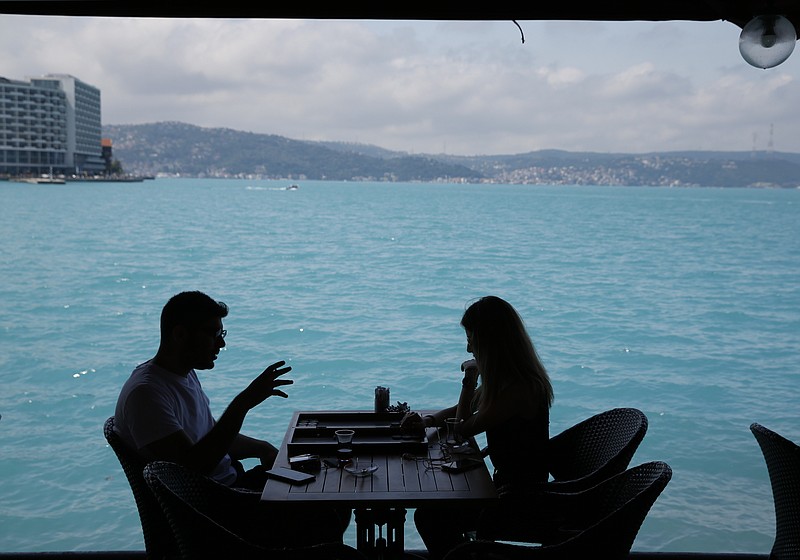ISTANBUL (AP) - The waters around Istanbul have turned a striking shade of turquoise.
A natural phenomenon called a "phytoplankton bloom" has turned the normally dark waters of the Bosporus and Golden Horn into an opaque tone of light blue. It's caused by microscopic organisms that have inundated the Black Sea, just north of Turkey's largest city.
Berat Haznedaroglu, an environmental engineer, says it's a normal annual event.
He said: "This year we got a lot of rain events that carried nutrients from the Saharan desert to the Black Sea, which created an optimal environment for this phytoplankton to bloom." Haznedaroglu works at the Institute of Environmental Sciences at Istanbul's private Bogazici University.
The Bosporus, a strait that separates Europe from Asia, also connects the Black Sea to the Sea of Marmara.
